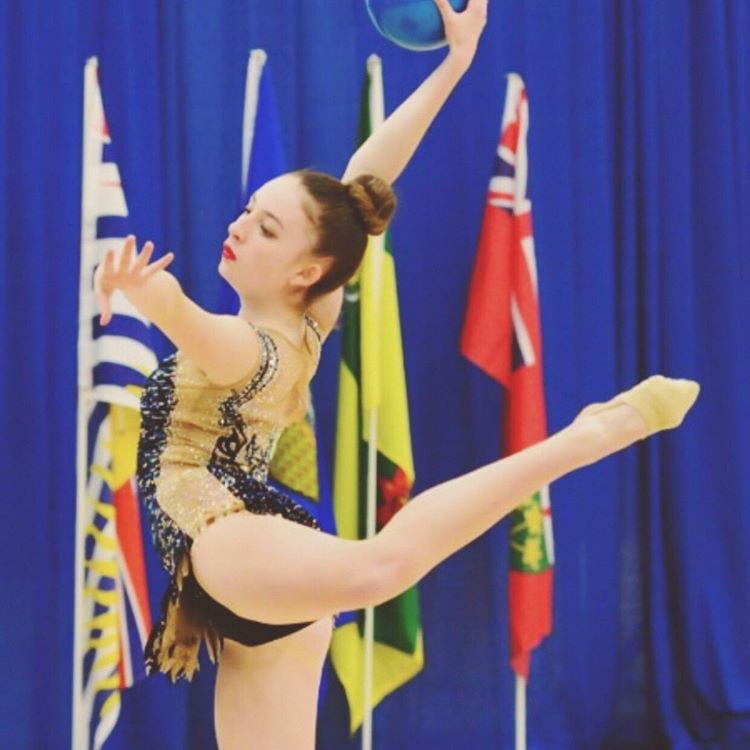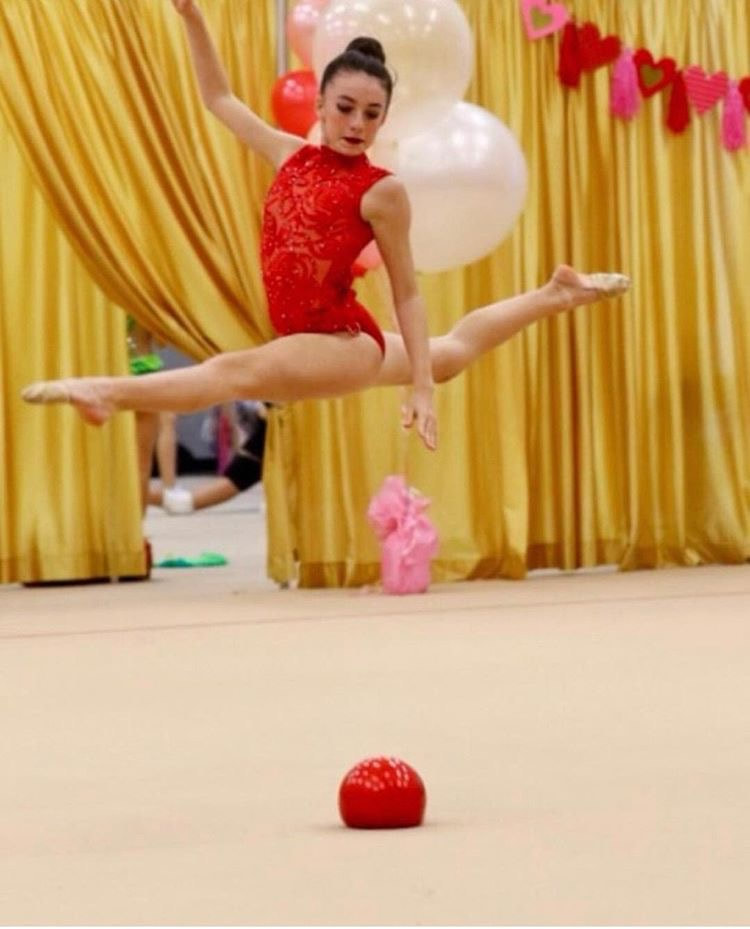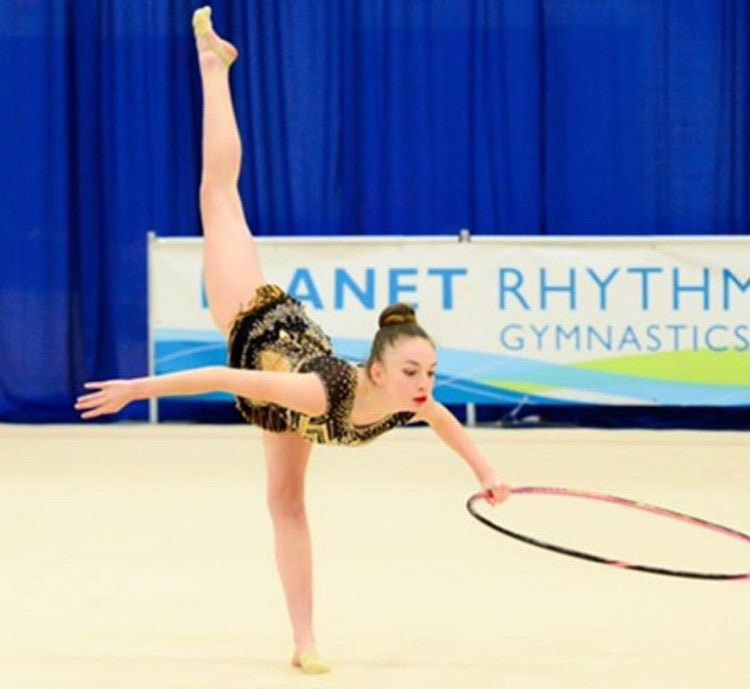By Clara Chalmers
Emma Sutcliffe, a grade ten at Collingwood, comes across as quiet; not shy exactly, but unobtrusive, not the type to seek the spotlight . She is a self proclaimed phone addict -- caring, stubborn, fond of baking and writing, though, according to her, neither hobby has been particularly profitable skill wise. Yet, in Collingwood’s talent show, she glided on stage, untethered by either backpack or self preservation- detached, it seemed, from her school identity. Hair coiled, varnished in a glimmering array of colour and jewels, she begin to dance. Although dance may not be the most befitting term. Her routine was a complex chain of swirling ribbons, delicately executed flips, and strange body contortions, executed in beat to the music. To the audience, it was dizzying -- a glimpse into that secret after-school life often blurred by the humdrum of school life. On stage was a new Emma Sutcliffe - bravely brandishing her passion, her talent, and, in some ways, her lifeline. Here was Emma, the rhythmic gymnast.
Weeks later, cloaked, once again, in both uniform and modesty, she rattled off a list of the mistakes she made during her performance, and shrugged when complimented for her prowess on stage. But she did agree to tell her story:
Emma took a summer gymnastic class at age nine -- and hated it. Lessons were spent scoffing at the beams and bars, ignoring her instructors, and altogether acting as insurgent. She strayed from the group, practicing walkovers under the quiet scrutiny of a rhythmic coach . She was soon invited to join their class - and gladly swapped “ordinary” gymnastics for aa world rife with glittering beauty and enthralling intricacy. Each performance is crutched on an almost otherworldly flexibility. For the first, and only time in her life, Emma felt that magic “click,” - that immediate sense she belonged and was meant to stay.
Emma Sutcliffe, a grade ten at Collingwood, comes across as quiet; not shy exactly, but unobtrusive, not the type to seek the spotlight . She is a self proclaimed phone addict -- caring, stubborn, fond of baking and writing, though, according to her, neither hobby has been particularly profitable skill wise. Yet, in Collingwood’s talent show, she glided on stage, untethered by either backpack or self preservation- detached, it seemed, from her school identity. Hair coiled, varnished in a glimmering array of colour and jewels, she begin to dance. Although dance may not be the most befitting term. Her routine was a complex chain of swirling ribbons, delicately executed flips, and strange body contortions, executed in beat to the music. To the audience, it was dizzying -- a glimpse into that secret after-school life often blurred by the humdrum of school life. On stage was a new Emma Sutcliffe - bravely brandishing her passion, her talent, and, in some ways, her lifeline. Here was Emma, the rhythmic gymnast.
Weeks later, cloaked, once again, in both uniform and modesty, she rattled off a list of the mistakes she made during her performance, and shrugged when complimented for her prowess on stage. But she did agree to tell her story:
Emma took a summer gymnastic class at age nine -- and hated it. Lessons were spent scoffing at the beams and bars, ignoring her instructors, and altogether acting as insurgent. She strayed from the group, practicing walkovers under the quiet scrutiny of a rhythmic coach . She was soon invited to join their class - and gladly swapped “ordinary” gymnastics for aa world rife with glittering beauty and enthralling intricacy. Each performance is crutched on an almost otherworldly flexibility. For the first, and only time in her life, Emma felt that magic “click,” - that immediate sense she belonged and was meant to stay.
With ease, she melded into the class’s rigorous patterns, and the hobby bloomed into a passion. Today, 6 days of the week are spent in the sweaty confines of gym; practices that consume her afternoons and time typically reserved for homework. In fact, her hobby leaches into other aspects of life, sculpting aspects of her character, such as perfectionism. A defeat, similarly, can push Emma of the precipice of sanity, into a well of depression and solitude.
But Emma does not dwell upon these so-called drawbacks. This spring, she voyaged with her team to Spain for a competition, thus missing several weeks of school. Yet she did not fret over homework, nor the encroaching exams, but remained happy - her instagram brandishing photos of smiles and backbends set against the sweeping vistas of Madrid. Rhythmic gymnastics takes precedence over other matters due to a simple reason; it is her worth,
“I wouldn’t be much without it, actually.” She states, nonchalantly.
For seven years, her story has been woven by this unique sport, a glimmering thread amongst the muted regimens of life . Rhythmic gymnastics is her passion, her identity - and yet, next year, Emma intends to give it up. She rebuffs other’s incredulity at this decision, cooly explaining that a gymnast career would be unrealistic, and a hobby, utterly ludicrous. .
“Maybe I’ll be a cop instead,” she says, with a characteristic shrug. “That would be cool.”
In time, her brush with the sport will diminish into a blip, and ability to perform such rigorous routines deteriorates with age. Yet, rhythmic gymnastics has left an inviolable legacy -- equipping her with a reservoir of self worth. It served to demonstrate her talents, as well as ingrain her with the habits of tenacity and sportsmanship. From Pinterest, Emma has also plucked a mantra that extends across all arenas of life; “train like you’ve never won, compete like you’ve never lost.” Fellow gymnasts have also morphed into friends - with whom’s bond Emma illustrates as integral in her life. Well into long, fruitful career as a cop, she will be able to procure photos of her performances. Vivid images that capture an Emma otherwise shrouded by her modesty -- one who is confident, talented, strong, and beautiful.



